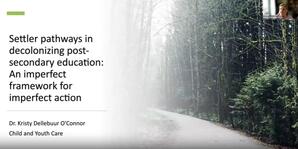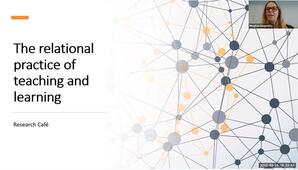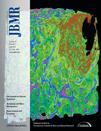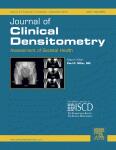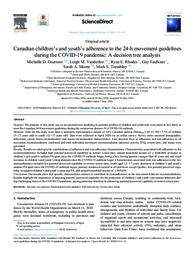Applied Community Studies
Related Works
Content type
Digital Document
Description / Synopsis
Presented at the American Society on Aging (ASA) On Aging conference, Orlando, Florida (April 21-25, 2025).
Origin Information
Content type
Video
Description / Synopsis
Presented at the Research Café on June 4, 2024.
Origin Information
Content type
Digital Document
Abstract
Harmful cultural narratives equate dementia with a loss of self, citizenship, narrative agency. Although leisure activities are widespread in dementia programs, less attention is paid to leisure’s social justice orientation and potential to resist dominant narratives. Raising the Curtain on the Lived Experiences of Dementia was a five-year community-based participatory research study, guided by the values and practices of social citizenship (Bartlett & O’Connor, 2007, 2010). The project explored how individuals living with dementia made sense of their lived experiences individually and collectively. Analysis of participants’ accounts of their dementia revealed the tragic self and the empowered self as two over-arching themes, showing how participants’ both adopted and resisted dominant dementia narratives. Insights suggest leisure spaces have potential to foster the narrative agency of individuals living with dementia to enable expression of the fullness of their experiences including powerlessness and agency; uncertainty and certainty; dread and joy; conformity and resistance.
Origin Information
Content type
Video
Description / Synopsis
Presented at the Research Café on March 21, 2024.
Origin Information
Content type
Digital Document
Abstract
The lived experience of dementia includes loss of identity due to the negative and pessimistic social narratives that are stigmatizing and socially isolating. In the community-based participatory research (CBPR) project Raising the Curtain on the Lived Experiences of Dementia, eleven individuals living with dementia participated as ‘peer collaborators’ in weekly co-creative workshops over two years. The purpose of this study was to investigate how peer collaborators described their involvement in Raising the Curtain in relation to their social participation and ability to effect social messages about dementia. Data gathered from the workshops, including transcripts (8) and one-on-one evaluation interviews (103), were used for analysis. Research findings revealed that the participants’ engagement as peer collaborators fostered their ability to enact resistance and social citizenship, including sharing lived experiences, combating the stigma of dementia, engendering inclusion and belonging, and promoting advocacy. Using CBPR to foster social citizenship suggests that meaningful and purposeful approaches to leisure are possible for individuals living with dementia.
Origin Information
Content type
Video
Description / Synopsis
Presented at the Douglas College Research Cafe, March 24, 2022.
Origin Information
Content type
Digital Document
Abstract
Bone is a complex structure with many levels of organization. Advanced imaging tools such as high‐resolution (HR) peripheral quantitative computed tomography (pQCT) provide the opportunity to investigate how components of bone microstructure differ between the sexes and across developmental periods. The aim of this study was to quantify the age‐ and sex‐related differences in bone microstructure and bone strength in adolescent males and females. We used HR‐pQCT (XtremeCT, Scanco Medical, Geneva, Switzerland) to assess total bone area (ToA), total bone density (ToD), trabecular bone density (TrD), cortical bone density (CoD), cortical thickness (Cort.Th), trabecular bone volume (BV/TV), trabecular number (Tb.N), trabecular thickness (Tb.Th), trabecular separation (Tb.Sp), trabecular spacing standard deviation (Tb.Sp SD), and bone strength index (BSI, mg2/mm4) at the distal tibia in 133 females and 146 males (15 to 20 years of age). We used a general linear model to determine differences by age‐ and sex‐group and age × sex interactions (p < 0.05). Across age categories, ToD, CoD, Cort.Th, and BSI were significantly lower at 15 and 16 years compared with 17 to 18 and 19 to 20 years in males and females. There were no differences in ToA, TrD, and BV/TV across age for either sex. Between sexes, males had significantly greater ToA, TrD, Cort.Th, BV/TV, Tb.N, and BSI compared with females; CoD and Tb.Sp SD were significantly greater for females in every age category. Males' larger and denser bones confer a bone‐strength advantage from a young age compared with females. These structural differences could represent bones that are less able to withstand loads in compression in females.
Origin Information
Content type
Digital Document
Abstract
We examined the use of high-resolution peripheral quantitative computed tomography (HR-pQCT [XtremeCT; Scanco Medical, Switzerland]) to assess bone microstructure at the distal radius in growing children and adolescents. We examined forearm radiographs from 37 children (age 8–14 yr) to locate the position of the ulnar and radial growth plates. We used HR-pQCT to assess bone microstructure in a region of interest (ROI) at the distal radius that excluded the growth plate (as determined from the radiographs) in all children (n = 328; 9–21 yr old). From radiographs, we determined that a ROI in the distal radius at 7% of bone length excluded the radial growth plate in 100% of participants. We present bone microstructure data at the distal radius in children and adolescents. From the HR-pQCT scans, we observed active growth plates in 80 males (aged 9.5–20.7 yr) and 92 females (aged 9.5–20.2 yr). The ulnar plate was visible in 9 male and 17 female participants (aged 11.2 ± 1.9 yr). The HR-pQCT scan required 3 min with a relatively low radiation dose (<3 μSv). Images from the radial ROI were free of artifacts and outlined cortical and trabecular bone microstructure. There is currently no standard method for these measures; therefore, these findings provide insight for investigators using HR-pQCT for studies of growing children.
[ABSTRACT FROM AUTHOR]
Origin Information
Content type
Digital Document
Abstract
Purpose
The purpose of this study was to use decision tree modeling to generate profiles of children and youth who were more or less likely to meet the Canadian 24-h movement guidelines during the coronavirus disease-19 (COVID-19) outbreak. <p>
<p>Methods
Data for this study were from a nationally representative sample of 1472 Canadian parents (Meanage = 45.12, SD = 7.55) of children (5–11 years old) or youth (12–17 years old). Data were collected in April 2020 via an online survey. Survey items assessed demographic, behavioral, social, micro-environmental, and macro-environmental characteristics. Four decision trees of adherence and non-adherence to all movement recommendations combined and each individual movement recommendation (physical activity [PA], screen time, and sleep) were generated. <p>
<p>
Results
Results revealed specific combinations of adherence and non-adherence characteristics. Characteristics associated with adherence to the recommendation(s) included high parental perceived capability to restrict screen time, annual household income of ≥ $100,000, increases in children's and youth's outdoor PA/sport since the COVID-19 outbreak began, being a boy, having parents younger than 43 years old, and small increases in children's and youth's sleep duration since the COVID-19 outbreak began. Characteristics associated with non-adherence to the recommendation(s) included low parental perceived capability to restrict screen time, youth aged 12–17 years, decreases in children's and youth's outdoor PA/sport since the COVID-19 outbreak began, primary residences located in all provinces except Quebec, low parental perceived capability to support children's and youth's sleep and PA, and annual household income of ≤ $99,999. <p>
<p>
Conclusion
Our results show that specific characteristics interact to contribute to (non)adherence to the movement behavior recommendations. Results highlight the importance of targeting parents’ perceived capability for the promotion of children's and youth's movement behaviors during challenging times of the COVID-19 pandemic, paying particular attention to enhancing parental perceived capability to restrict screen time.
Origin Information
Content type
Digital Document
Abstract
The COVID-19 outbreak and related public health guidelines have changed the daily lives of Canadians and restricted opportunities for healthy movement behaviours for children. The purpose of this study was to explore how parents experienced the pandemic-related restrictions and how they impacted their children’s movement behaviours. Methods: Twenty-nine semi-structured one-on-one interviews were conducted (June–July 2020) with parents of children (5–11 years old) in Ontario and British Columbia. Interviews lasted between 24–104 min, were audio-recorded, transcribed verbatim, and thematically analyzed. Results: Findings emphasized various individual (e.g., motivation), interpersonal (e.g., parent work schedule), built (e.g., closure of parks) and natural environment (e.g., weather) factors related to children’s movement behaviours. The findings highlighted the loss of structured activities and destinations for children’s physical activity, and restricted opportunities for outdoor play exacerbated by shrinking childhood independent mobility. Conclusion: Families are adapting to many pandemic-related challenges including adhering to public health restrictions, parents juggling multiple roles, conducting work and school from home, as well as exacerbating factors like weather. It will be important to continue to encourage outdoor time, support policies and practice that facilitate independent mobility, and develop centralized resources that help families in the maintenance of healthy movement behaviours.
Origin Information


